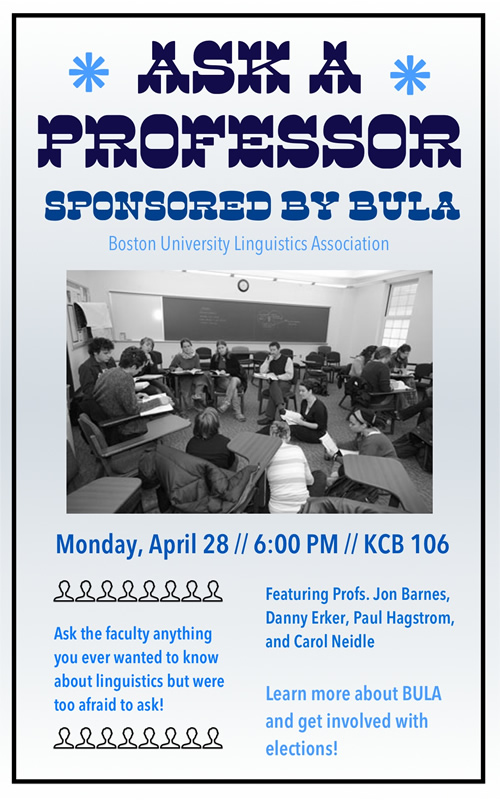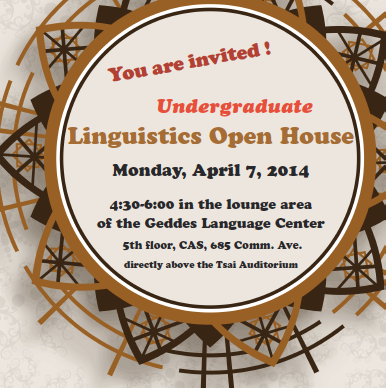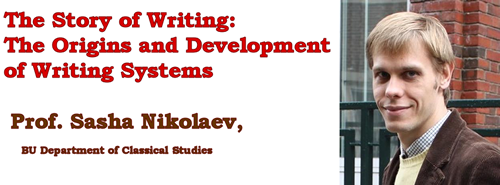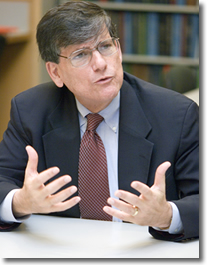November 30th from 1 to 1:50 pm in CAS 224. Prof. Mara Breen is coming to talk to Boston University about her work in Prosody. A professor at Mount Holyoke College. Her abstract is below: Implicit prosody in reading: Listening to the little voice in our heads
Facebook Event: https://www.facebook.com/events/136729799807354/
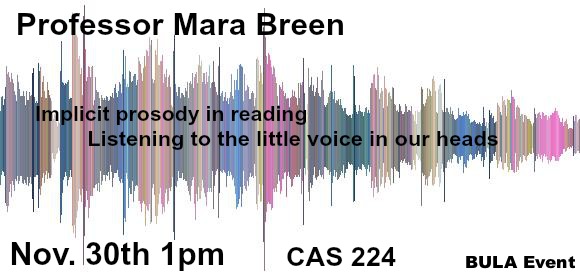
ABSTRACT: For over one hundred years, researchers have wondered about the nature of the inner voice during silent reading. One of the main questions that has concerned researchers is whether the inner voice serves a purpose during reading. That is, is the producing, or hearing, of words and phrases during reading simply epiphenomenal—a by-product of the fact that language has been spoken far longer than it has been written, or does it enhance the reader’s processing and understanding of the written word? In the current talk, I will present eye-tracking and event-related potential experiments designed to empirically explore the nature of this inner voice, commonly called implicit prosody. I will argue that implicit prosody plays a functional role during reading, in that it can direct the reader’s syntactic interpretation of sentences.


